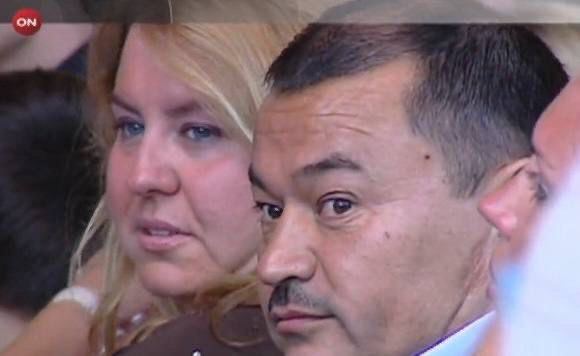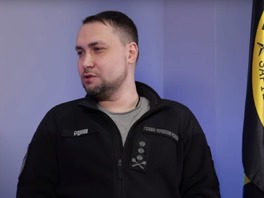A Ukrainian businessman who was "stripped" of 9 million euros in Latvia continues to seek justice in the country's law enforcement system for more than 10 years!
In 2012, Latvia was shaken by a high-profile case: 80 freight cars of Tajik cotton worth 9 million euros vanished from a warehouse in Jūrmala.
The owner of the cargo was an Estonian enterprise with a sole owner – a Kyiv businessman and citizen of Ukraine Andrii Stepovyi.
The case was so resonant that it was even discussed at a meeting of the presidents of Latvia and Tajikistan.
The customs warehouse where the cotton was stored belonged to the Latvian businessman of Afghan origin Gulam Mohammad Gulami.
In 2018, a district court in Riga charged Gulami with the cotton theft, and sentenced him to 8 years in prison. Valentina Gulami, his wife, also stood trial and was
sentenced to 7 years in prison, along with another defendant, accountant Larisa Karpenko, who received 5 years in prison.
In the verdict, the judge of the Riga district, Inta Naruška, indicated (case No. 11816007414) that all three were found guilty under the third part of Article 179 (embezzlement on a grand scale) and the second part of Article 275 (document forgery). At the same time, the court indicated that none of the convicts would be arrested in the courtroom, but they would be subject to a preventive measure prohibiting them from leaving the country. The court also ordered Gulami to pay the cotton owner 9 million euros in damages.
In 2021,after a long consideration of the case, the Court of Appeal upheld the verdict of the court in Riga, as well as the amount of damages for restitution.
However, as of the end of 2022 no cotton, nor money was delivered, the suspects are at large, and the case is still pending in the Supreme Court of Latvia.
- ‘How is it that such a thing happened in a prosperous, law-governed state of the European Union?’ - we ask Andrii Stepovyi – a businessman, a citizen of Ukraine, the owner of Logistik-Express company (Tallinn, Estonia).
- ‘Initially, my idea was to create a sort of “cotton supermarket” in Europe. A Tajik enterprise and the country's leadership agreed to work under this program. I worked through my Estonian company as a resident of the European Union. It was not by chance that the Baltics were chosen to create such a “cotton supermarket” – they possess a developed system of ports and good logistics, such as transshipment to Western Europe.
Initially, everything was supposed to happen through the port of Tallinn: we brought a very small part of the cargo there, and it was the one that happened to remain intact. But my partners, very respected people from Tajikistan, offered to work with Gulam Gulami. We went to see a specialized warehouse for cotton in Jūrmala, this customs warehouse was owned by Gulami. It was decided to redirect all shipments to Latvia. Before that, he dealt in cotton with Uzbekistan. Unfortunately, at that time I did not know how that cooperation turned out for the Uzbeks, I learned about it later. As a result, we chose the location of the "cotton supermarket" – Gulami’s customs warehouse in Jūrmala.
It was decided to provide a supply of about 10 thousand tons. The task was almost completed. We sold some of the cotton. And then strange things started to happen: I received information from Europe that Gulami was offering our cotton... as his own product!’
- ‘In the warehouse, was there only cotton that belonged to you?’
- ‘Yes, to my company. In freight forwarding, there is such a thing as a warehouse receipt. It’s approved by the international federation FIATA, which unites national forwarding associations of 150 countries of the world. With this warehouse receipt, one can even take loans from banks for goods that are in stock. I appealed to the Latvian customs committee with a statement that there was an unauthorized export of my goods from the warehouse. The warehouse itself was a customs warehouse, it was impossible to take goods out of it without the permission of the Latvian customs, it was a customs zone. In the letter, I requested the customs to immediately stop all shipments of the cotton, because the owner of the cargo does not permit this. I did not receive any response from the customs service, the letter simply “got lost” there, although it was sent in accordance with all the rules, and a registration, etc. As I see it, the customs were, as they say, "in on it." But there was a response from criminal structures who tried to make it clear to me that there was no need in writing to anyone or doing anything.’
‘When the court hearings of the criminal case had already begun, I learned from the case materials that the legal paperwork from the licensed customs warehouse had been registered using copies of documents, the originals of which did not exist! This is nonsense - how could goods be exported using copies of documents from a licensed customs warehouse?’
‘I am also aware of Gulami’s offshore companies, which eventually received the money for the sold cotton

‘Did this cotton belong directly to you as the owner of the company, or did your company just carry out the forwarding of the goods?’
‘My company was the sole owner of this product, so Gulami owes money to Logistik-Express. Later, due to the threat of physical elimination, I had to transfer the rights to the company to another person. To, as they say, "take me off of their sights."


According to the court judgment, Gulami is not allowed to travel abroad. He cannot leave Latvia. However, during the trial, he visited Ukraine a number of times, including to physically and psychologically pressure me into changing my testimony. The court has my corresponding statement and official information from the Border Guard Service of Ukraine: only in the period of 2019-2020 Gulami crossed the Ukrainian state border 22 times in total. I’m curious how Latvia will react to this document...

‘Is it true that after the goods disappeared, fakes were placed in the warehouses for some time, although the cotton itself had already been exported by that time?’
‘When our partners from Tajikistan arrived at the warehouse, they were told that the "cotton is under the awning." When they lifted it, there was no cotton there, just some dummies for appearance’s sake. Gulami didn't let me into the warehouse. From the moment I wrote a complaint to customs, he stopped his communication with me completely.
When I sued him, a promissory note appeared at the court of original jurisdiction, which transferred all the goods to the ownership of an offshore company owned by Gulami. It claimed that with this promissory note I paid off the debt of the amount that he transferred to me for some commercial needs, in the amount of 12 million US dollars in cash. Several inspections were carried out, both in Latvia and in Europe, and it was proved that the signature on this bill was false. All this is in the criminal case files.
Later we met at a confrontation with the investigator, where he said: “Stepovyi is an honest man, he paid his debts to me!” To which I replied: “I would very much like to see the person who brought 120 kg of money to my office in a suitcase and simply handed it over without even asking for a receipt.” After that, Gulami had a new “version” that he did not transfer the money in cash, but transferred it to the accounts of my companies!
When the investigation uncovered the companies to which he allegedly transferred the money, they all turned out to be his own offshore companies or offshore companies that were registered to his wife and accountant!’
‘Why were the hearings in the court of original jurisdiction held behind closed doors? There is virtually no information about the hearings…’
‘I’ll tell you more - all three jurisdictions work behind closed doors. At Gulami's request. For me, this is very surprising.’
At the moment, the case is in the Supreme Court of Latvia, the reading is somehow very suspiciously delayed. It has probably been a year since the last meeting. No one provides any explanations: "everything is going according to the legal process." And exactly how it is going - neither we, nor the public know. I have information that Gulami made several sales of his property, withdrew money from the liquid funds of the company, for which warehouses in Jūrmala were registered. I suspect he uses this money to “keep the situation under control”, to keep the trial going for as long as possible, but I don’t want to believe it.’
‘Even by Ukrainian standards of criminal proceedings, this is taking too long. I chose Latvia for doing business not by chance, but with the hope that the high standards of the European Union, including the legal sector will guarantee safety for me and my money. I would hate to believe that I was wrong.’
‘In this regard, I would like to appeal to the newly elected Saeima to take control of the case, and with the help of the deputy inquiries to the law enforcement authorities, to look into why this case is taking so long. I'm sure many more interesting facts will be revealed…
And all of this happened after an international group was established in The Hague in 2019 to address the Gulami crimes committed on the territory of Ukraine, Latvia and other EU countries.’
‘What was the outcome of the investigation?’
‘In Ukraine I met with people from the investigative body of the National Police who traveled to The Hague. The case, as it happens, involved not just the cotton – Gulami was being considered there as an international fraudster. There are several cases opened against him in Ukraine alone – tax fraud, money laundering... But someone was “hindering” the case really well – both from the Ukrainian and Latvian sides. In fact, the group in The Hague never started to fully function, and the investigation group was informally disbanded.’
‘The “cotton case” was discussed at the highest level: the President of Tajikistan, Emomali Rahmon, was even forced to turn to his Latvian counterpart Andris Berzins with a request to assist in the search for the “missing” cotton ... I remember that the President of Estonia was also involved. However, these statements were drowned in bureaucratic corridors.’
‘Is it true that after the disappearance of the goods, Tajikistan did not export cotton through Latvia for several years at all?’
‘Here’s the backstory. In Tajikistan itself, there were often cases when the same cotton was sold to different people. Different buyers were shown the same batch of cotton, they paid money, and in the end the cotton went to one of them. The rest were told they would be supplied with cotton from the next batch. And that’s, how they "stiffed" them. As a consequence, because of the established reputation, nobody really wanted to deal with Tajikistan in cotton anymore. Therefore, respectable sellers in Tajikistan and I came up with the idea to make a “cotton supermarket” in Europe, so that every buyer could come and see the goods with their own eyes, and, as a result, Tajik cotton would be able to easily enter European markets. But Gulami cast a long shadow on this whole idea.
Now everything depends on the Latvian Court...






